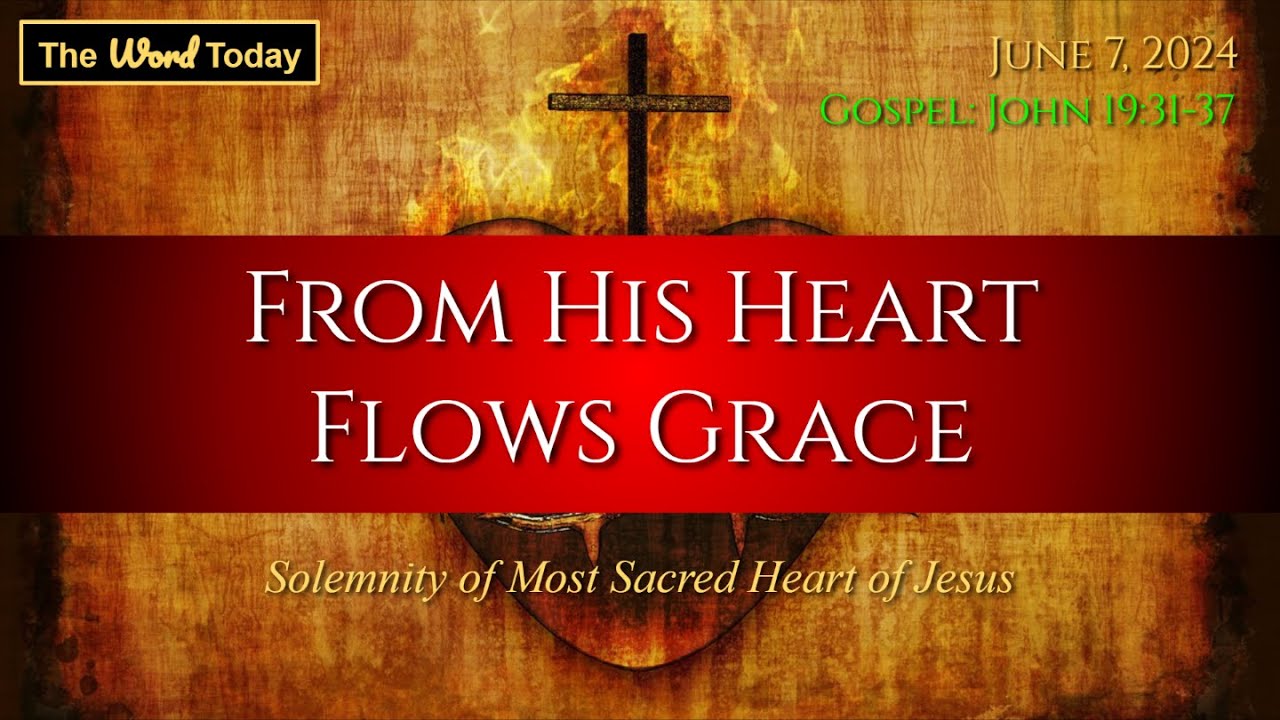First reading from the book of the Prophet Hosea
Hos 11:1, 3-4, 8c-9
Thus says the LORD:
When Israel was a child I loved him,
out of Egypt I called my son.
Yet it was I who taught Ephraim to walk,
who took them in my arms;
I drew them with human cords,
with bands of love;
I fostered them like one
who raises an infant to his cheeks;
Yet, though I stooped to feed my child,
they did not know that I was their healer.
My heart is overwhelmed,
my pity is stirred.
I will not give vent to my blazing anger,
I will not destroy Ephraim again;
For I am God and not a man,
the Holy One present among you;
I will not let the flames consume you.
Second reading from the Letter to the Ephesians
Eph 3:8-12, 14-19
Brothers and sisters:
To me, the very least of all the holy ones, this grace was given,
to preach to the Gentiles the inscrutable riches of Christ,
and to bring to light for all what is the plan of the mystery
hidden from ages past in God who created all things,
so that the manifold wisdom of God
might now be made known through the church
to the principalities and authorities in the heavens.
This was according to the eternal purpose
that he accomplished in Christ Jesus our Lord,
in whom we have boldness of speech
and confidence of access through faith in him.
For this reason I kneel before the Father,
from whom every family in heaven and on earth is named,
that he may grant you in accord with the riches of his glory
to be strengthened with power through his Spirit in the inner self,
and that Christ may dwell in your hearts through faith;
that you, rooted and grounded in love,
may have strength to comprehend with all the holy ones
what is the breadth and length and height and depth,
and to know the love of Christ which surpasses knowledge,
so that you may be filled with all the fullness of God.
Alleluia
From the Gospel according to John
Jn 19:31-37
Since it was preparation day,
in order that the bodies might not remain on the cross on the sabbath,
for the sabbath day of that week was a solemn one,
the Jews asked Pilate that their legs be broken
and they be taken down.
So the soldiers came and broke the legs of the first
and then of the other one who was crucified with Jesus.
But when they came to Jesus and saw that he was already dead,
they did not break his legs,
but one soldier thrust his lance into his side,
and immediately blood and water flowed out.
An eyewitness has testified, and his testimony is true;
he knows that he is speaking the truth,
so that you also may come to believe.
For this happened so that the Scripture passage might be fulfilled:
Not a bone of it will be broken.
And again another passage says:
They will look upon him whom they have pierced.
The Heart of Christ shows us Jesus who offers Himself, it is the compendium of his mercy. Looking at it – like John did in the Gospel (19: 31-37), it comes naturally to us to remember his goodness, which is freely given, which can be neither bought nor sold; and unconditional, it does not depend on our actions, it is sovereign. And it is moving. In today’s haste, in the midst of a thousand errands and continuous worries, we are losing the capacity to be moved and to feel compassion, because we are losing this return to the heart, that is, this memory, this return to the heart. Without memory one loses one’s roots, and without roots, one does not grow. It is good for us to nurture the memory of who has loved us, cared for us, and lifted us up. (…) I wonder: how does our memory work? To simplify, we could say that we remember someone or something when it touches our heart, when it binds us to a particular affection or lack of affection. And so the Heart of Jesus heals our memory because it brings it back to the fundamental affection. It roots it on the most solid base. It reminds us that, whatever happens to us in life, we are loved. (Homily, Agostino Gemelli, 5 November 2021)
